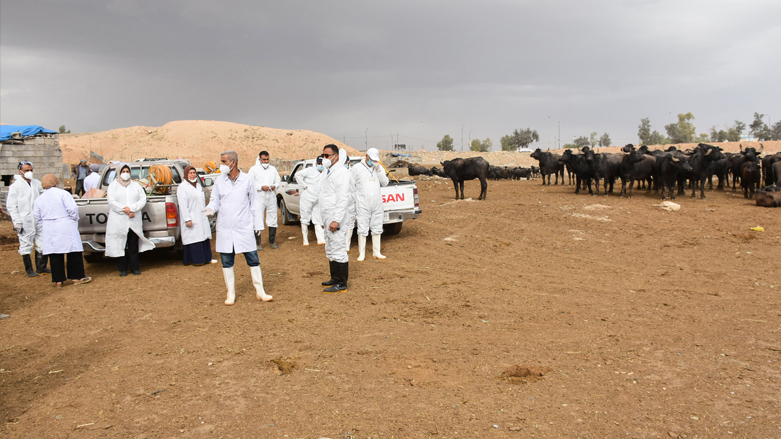Iraq has recorded over 100 cases of Crimean-Congo fever, 20 deaths: Ministry

ERBIL (Kurdistan 24) – Over 100 cases of the Crimean-Congo hemorrhagic fever have been recorded in Iraq, of which 20 have proven fatal, according to the latest figures from the Ministry of Health on Tuesday.
While the virus is not new to Iraq, the country has seen a noticeable increase in the number of infections this year, with 120 recorded cases, the spokesperson for the Iraqi Ministry of Health and Environment Saif Al-Badr told the Iraqi News Agency on Tuesday.
No vaccine or known cure has been discovered for the virus, the symptoms of which include external and internal bleeding from the nose. The fatality rate can be as high as 40 percent.
Such viruses are transmitted by ticks, which also infect livestock.
On Saturday, Baghdad Governorate formed a task force to contain the disease by spraying livestock with disinfectants and raising awareness about precautions that can be taken to reduce the fever’s spread.
According to Iraqi health officials, most of the cases were recorded in Dhi Qar province.
Iraq has issued stricter hygiene protocols for animal slaughterhouses and banned the slaughter of animals outside of designated facilities to reduce the spread of such fevers.
The World Health Organization representative in Iraq, Ahmed Zouiten, recently suggested to AFP that the recent rise in the viral hemorrhagic fevers like the Congo-Crimean is a result of reduced spraying of livestock in Iraqi over the past two years due to the COVID-19 pandemic.
Global warming could also be a contributing factor, Zouiten cautiously suggested, since it lengthens “the period of multiplication of ticks.”
